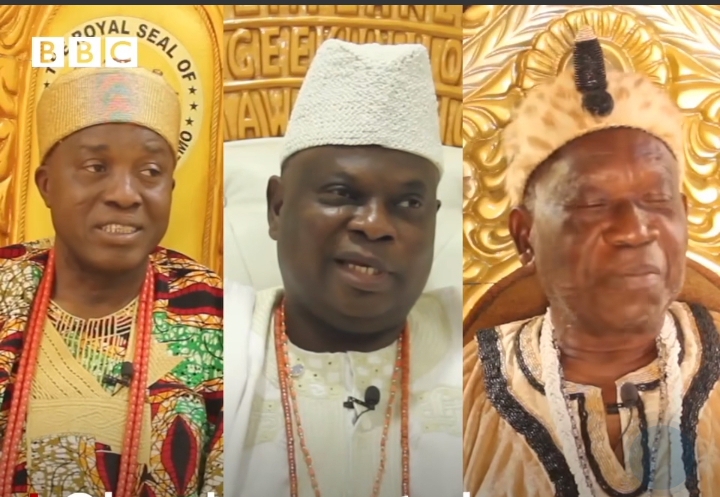By Bilesanmi Abayomi
In recent discussions among Yoruba monarchs in Western Nigeria, the traditional practice of “Ìpèbí” has emerged as a topic of contention, stirring varying opinions and judgments among the region’s rulers.
“Ipebi,” a period of seclusion undertaken by newly elected Yoruba monarchs to undergo ancestral rituals before their formal coronation, has long been regarded as a crucial step in ascending to the throne. However, recent interviews conducted by BBC Yoruba with several monarchs shed light on differing perspectives regarding this ancient tradition.
Expressing the significance of Ipebi rites, the Olota of Ota, Oba Adeyemi Obalanlege, emphasized its importance in fortifying the king, labeling any omission of the process as detrimental to the monarch’s authority. He went as far as to categorize an Oba who bypasses the seclusion as “Oba Butter,” implying a lack of substance or strength in their reign.
In contrast, the Onipara of Ipara Remo Kingdom, His Royal Majesty, Oba Fatai Adesina Sorinola, offered a divergent view, suggesting that the power of a king is inherent and not dependent on undergoing the seclusion rites. According to him, the process of becoming a king initiates the monarch’s authority, with or without the formal rituals.
Adding to the discourse, Kunle Dotman highlighted a modern perspective, indicating a shift in the traditional power dynamics surrounding the Oba title. With gubernatorial approval now determining royal appointments, Dotman questioned the relevance of Ipebi, suggesting a pragmatic approach where Obas could serve as community leaders and spearhead local security initiatives.


